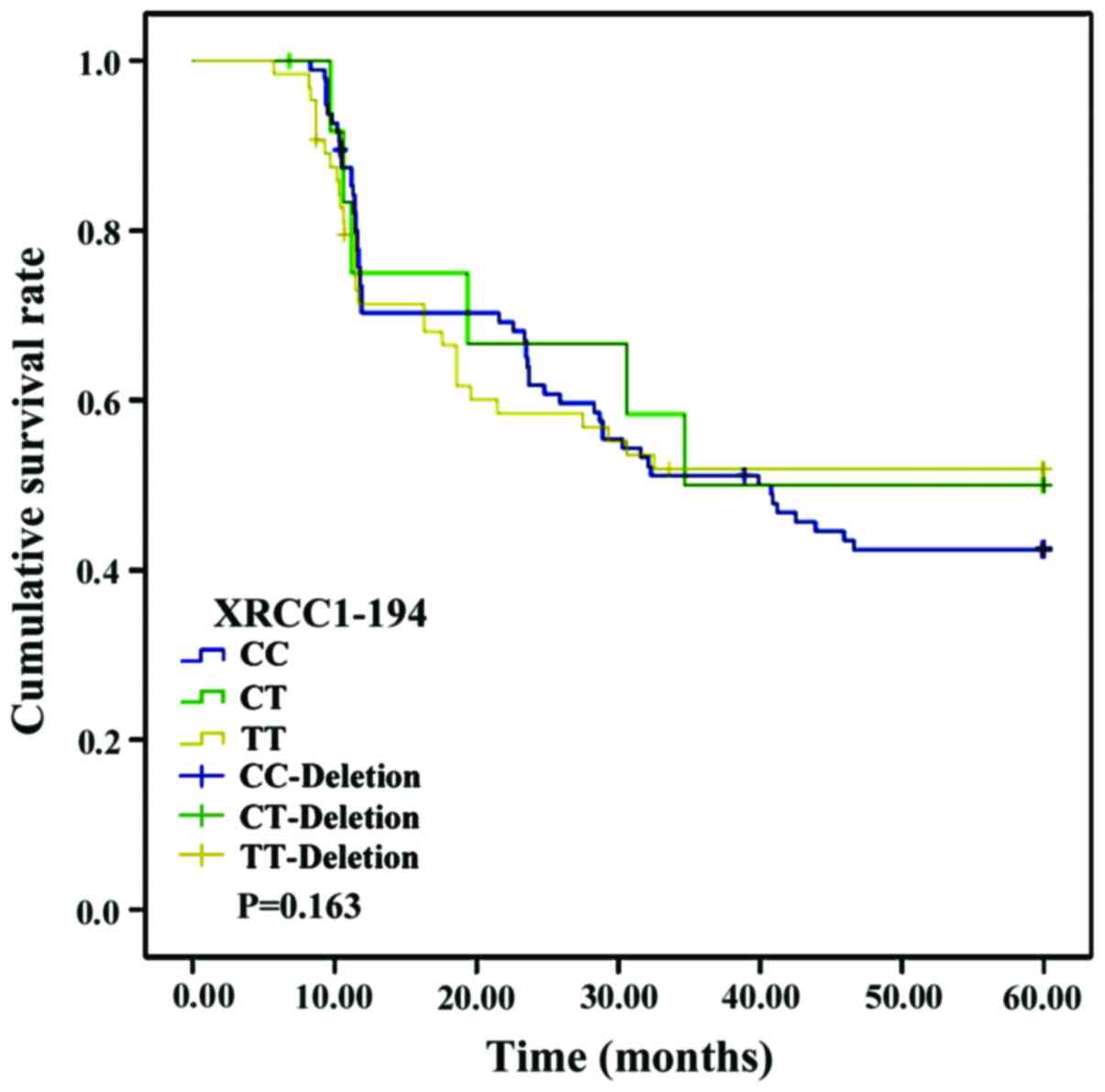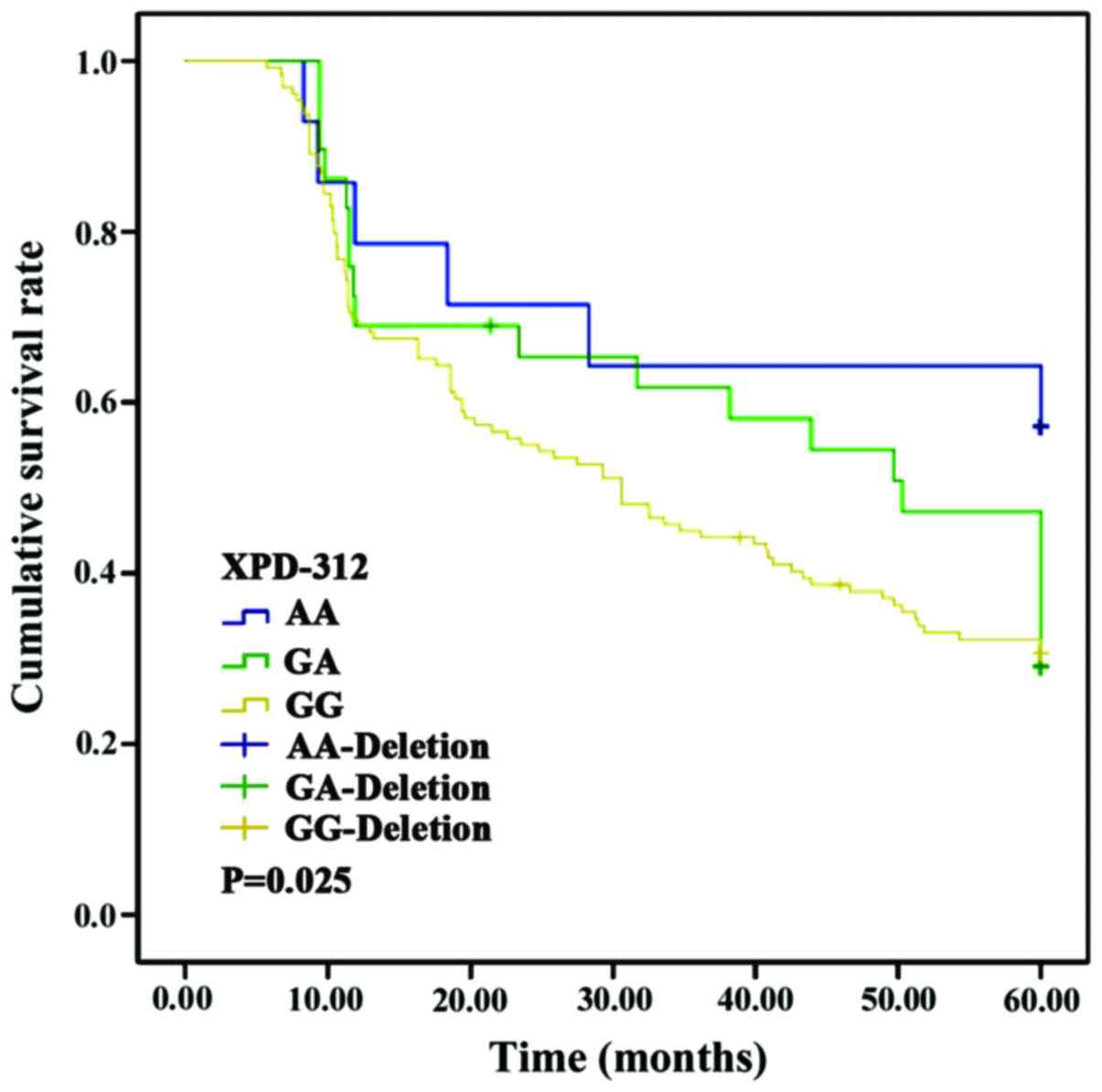|
1
|
Bruix J, Gores GJ and Mazzaferro V:
Hepatocellular carcinoma: Clinical frontiers and perspectives. Gut.
63:844–855. 2014. View Article : Google Scholar : PubMed/NCBI
|
|
2
|
Lee SS, Shin HS, Kim HJ, Lee SJ, Lee HS,
Hyun KH, Kim YH, Kwon BW, Han JH, Choi H, et al: Analysis of
prognostic factors and 5-year survival rate in patients with
hepatocellular carcinoma: A single-center experience. Korean J
Hepatol. 18:48–55. 2012. View Article : Google Scholar : PubMed/NCBI
|
|
3
|
Kew MC: Hepatocellular carcinoma:
Epidemiology and risk factors. J Hepatocell Carcinoma. 1:115–125.
2014. View Article : Google Scholar : PubMed/NCBI
|
|
4
|
Seguí N, Mina LB, Lázaro C, Sanz-Pamplona
R, Pons T, Navarro M, Bellido F, López-Doriga A, Valdés-Mas R,
Pineda M, et al: Germline mutations in FAN1 cause hereditary
colorectal cancer by impairing DNA repair. Gastroenterology.
149:563–566. 2015. View Article : Google Scholar : PubMed/NCBI
|
|
5
|
Patrono C, Sterpone S, Testa A, Verna L,
Palma V, Gentile P and Cozzi R: Polymorphisms in X-ray repair
cross-complementing group 1 gene: Haplotypes, breast cancer risk
and individual radiosensitivity. Open Med J. 2:25–30. 2015.
View Article : Google Scholar
|
|
6
|
Tamura D, DiGiovanna JJ, Khan SG and
Kraemer KH: Living with xeroderma pigmentosum: Comprehensive
photoprotection for highly photosensitive patients. Photodermatol
Photoimmunol Photomed. 30:146–152. 2014. View Article : Google Scholar : PubMed/NCBI
|
|
7
|
Wang YX, De Baere T, Idee JM and Ballet S:
Transcatheter embolization therapy in liver cancer: An update of
clinical evidences. Chin J Cancer Res. 27:96–121. 2015.PubMed/NCBI
|
|
8
|
Hung HH, Chao Y, Chiou YY, Li CP, Lee RC,
Huo TI, Huang YH, Chau GY, Su CW, Yeh YC, et al: A comparison of
clinical manifestations and prognoses between patients with
hepatocellular carcinoma and Child-Pugh scores of 5 or 6. Medicine
(Baltimore). 93:e3482014. View Article : Google Scholar : PubMed/NCBI
|
|
9
|
Liu F, Wang J, Chang H, Lu J and Li H:
Relevance between HLA-DP gene rs2281388 polymorphism and
hepatocellular carcinoma risk. Int J Clin Exp Pathol. 8:7431–7435.
2015.PubMed/NCBI
|
|
10
|
Huang X, Zeng Y, Xing X, Zeng J, Gao Y,
Cai Z, Xu B, Liu X, Huang A and Liu J: Quantitative proteomics
analysis of early recurrence/metastasis of huge hepatocellular
carcinoma following radical resection. Proteome Sci. 12:222014.
View Article : Google Scholar : PubMed/NCBI
|
|
11
|
Petta S, Miele L, Bugianesi E, Cammà C,
Rosso C, Boccia S, Cabibi D, Di Marco V, Grimaudo S, Grieco A, et
al: Glucokinase regulatory protein gene polymorphism affects liver
fibrosis in non-alcoholic fatty liver disease. PLoS One.
9:e875232014. View Article : Google Scholar : PubMed/NCBI
|
|
12
|
Akhdar H, El Shamieh S, Musso O, Désert R,
Joumaa W, Guyader D, Aninat C, Corlu A and Morel F: The
rs3957357C>T SNP in GSTA1 is associated with a higher risk of
occurrence of hepatocellular carcinoma in european individuals.
PLoS One. 11:e01675432016. View Article : Google Scholar : PubMed/NCBI
|
|
13
|
Duxin JP and Walter JC: What is the DNA
repair defect underlying Fanconi anemia? Curr Opin Cell Biol.
37:49–60. 2015. View Article : Google Scholar : PubMed/NCBI
|
|
14
|
Bharati R, Jenkins MA, Lindor NM, Le
Marchand L, Gallinger S, Haile RW, Newcomb PA, Hopper JL and Win
AK: Does risk of endometrial cancer for women without a germline
mutation in a DNA mismatch repair gene depend on family history of
endometrial cancer or colorectal cancer? Gynecol Oncol.
133:287–292. 2014. View Article : Google Scholar : PubMed/NCBI
|
|
15
|
Caldecott KW: DNA single-strand break
repair. Exp Cell Res. 329:2–8. 2014. View Article : Google Scholar : PubMed/NCBI
|
|
16
|
Fahmideh M Adel, Schwartzbaum J, Frumento
P and Feychting M: Association between DNA repair gene
polymorphisms and risk of glioma: A systematic review and
meta-analysis. Neuro Oncol. 16:807–814. 2014. View Article : Google Scholar : PubMed/NCBI
|
|
17
|
Wang JY and Cai Y: X-ray repair
cross-complementing group 1 codon 399 polymorphism and lung cancer
risk: An updated meta-analysis. Tumour Biol. 35:411–418. 2014.
View Article : Google Scholar : PubMed/NCBI
|
|
18
|
Li Y, Ma QH, Huang ZY, Li SW, Liu F and
Tan S: P0163 X-ray repair cross-complementing group 1 (XRCC1)
genetic polymorphisms and cervical cancer risk: A systematic review
and meta-analysis. Eur J Cancer. 50:e552014. View Article : Google Scholar
|
|
19
|
Liu J, Fang H, Chi Z, Wu Z, Wei D, Mo D,
Niu K, Balajee AS, Hei TK, Nie L, et al: XPD localizes in
mitochondria and protects the mitochondrial genome from oxidative
DNA damage. Nucleic Acids Res. 43:5476–5488. 2015. View Article : Google Scholar : PubMed/NCBI
|
|
20
|
Bănescu C, Trifa AP, Demian S, Lazar E
Benedek, Dima D, Duicu C and Dobreanu M: Polymorphism of XRCC1,
XRCC3, and XPD genes and risk of chronic myeloid leukemia. BioMed
Res Int. 2014:2137902014. View Article : Google Scholar : PubMed/NCBI
|
|
21
|
Li P, Wang YD, Cheng J, Chen JC and Ha MW:
Association between polymorphisms of BAG-1 and XPD and chemotherapy
sensitivity in advanced non-small-cell lung cancer patients treated
with vinorelbine combined cisplatin regimen. Tumour Biol.
36:9465–9473. 2015. View Article : Google Scholar : PubMed/NCBI
|
















